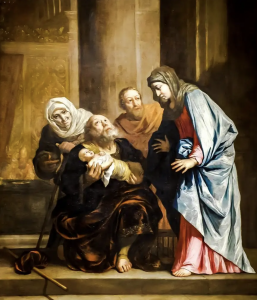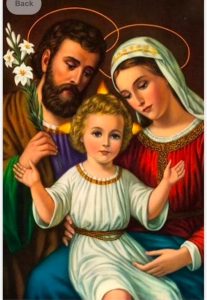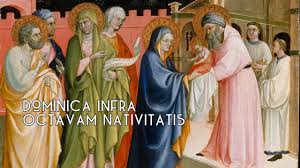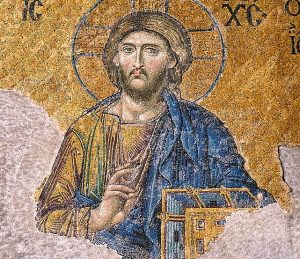Today is the Epiphany of the Lord. This feast focuses on the manifestation, revelation, or showing of Jesus to the world. We have many experiences that testify to the fact that Jesus manifests Himself to us. In fact, almost every day of our life, we encounter God’s presence on countless occasions, through meeting of various people with exemplary character and holiness, and at times ordinary people who have shown us to do the right thing. Their actions are impressive to teach us a lesson and make determination to change. God is consistent to show us the star where Jesus is. The light of the star is Jesus, the true Light that brings into the world God’s presence.
The first reading from the book of the Prophet Isaiah made mention of how God actively intervenes in the preparation of the birth by the young girl and her faithful husband waiting for the splendor of Jerusalem. Because there is the revelation of light to defeat darkness, then radiance will be seen and experienced in one’s heart. All the actions of those people called, like Mary, Joseph, shepherds and wise men, are something marvelous to fulfill this event. Through them, God chose to reveal the mystery of God’s plan for the salvation of the entire world. It ends in showing the “Glory of God.”
In the second reading, taken from the Letter of St. Paul to the Ephesians, St. Paul exalts that the mystery of salvation treasured by the Jewish people is not an exclusive possession, but God’s intention includes the salvation of the Gentiles, the world beyond the Jews, ”It was not made known to people in other generations as it has now been revealed so that the Gentiles are coheirs, members of the same body, and copartners in the promise in Christ Jesus through the gospel” (Eph3: 5-6). The testimony of St. Paul is that the light reveals the “mystery” of God’s desire and plan to bring all people into the one family of God.
The gospel for today’s feast, taken from the evangelist Matthew, reminds us of God’s victory to manifests His enduring love for us, revealing the Incarnate Son to the whole world.
First, Epiphany always reminds us of the three Magi. However, the Magi reveal the identity of Jesus, with their wisdom and their sharing of astrological skills, which give joy for the special revelation and announcement of Jesus’ birth to all people.
Second, the Magi bring rich gifts to honor the child and to pay homage to the child’s kingship and divinity in Jesus, a contrast to the poor surroundings of this most special birth. Gold, frankincense, and myrrh, fitting offering to a newborn Jesus. (If wiser women came to Bethlehem to pay homage to the child, most probably they would offer practical gifts, like diapers, milk and blankets, a down to earth gifts to Jesus; however, it would diminish the meaning of what the gifts symbolized), Gold for being a King, Frankincense for a Divine God, and Myrrh for someone who will suffer and for the anointing of His body with His impending death for us all.
Third, the Magi encourage us to listen to the voice of God through an angel to change our route in life. Thus, the Magi give us hope and courage to seek Jesus always, despite the many obstacles and trials we encounter along the way. We must have the determination of the Magi to make decisions and right choices and be willing to begin a journey towards our Savior.
Brothers and Sisters, let us be able to understand that the significance of the feast is great. We are all invited to keep an eye on Jesus through our fervent prayers so that we will all succeed in our journey to be closer to God. The Magi were able to focus on their journey searching for Jesus; therefore, our goal throughout this year 2025 is to be like them, to faithfully walk the path of searching and finding God in our hearts. The Holy Spirit guidance is to show the right path. Let us rejoice with heartfelt gratitude. This is our clear Faith” “perspective in our journey together, verifying our common mission to manifest God’s presence to others.
What is our best gift to Jesus? I encourage everyone to establish an intentional and personal relationship with the Lord as He promised that gifted relationship with Him would extend to the ends of the earth. And there is no greater gift you can give than leading someone to Him. Probably, no one could have realized that it is possible to happen.
Loving God, walk with us as we travel our way towards you.
Fr. Arlon, osa
————–
El Dictado del Corazón: La Epifanía del Señor
- Isaías 60:1-6
- Salmo 72:1-2, 7-8, 10-11, 12-13
- Efesios 3:2-3a, 5-6
- Mateo 2:1-12
Hoy celebramos la Epifanía del Señor. Esta fiesta se centra en la manifestación, revelación o revelación de Jesús al mundo. Tenemos muchas experiencias que atestiguan el hecho de que Jesús se manifiesta a nosotros. De hecho, todos los días de nuestra vida, nos encontramos con la presencia de Dios en innumerables ocasiones, a través de encuentros con diversas personas de carácter ejemplar y santidad. A veces, personas comunes que nos han mostrado cómo hacer lo correcto. Sus acciones son impresionantes y nos enseñan lecciones que nos motivan a cambiar. Dios es constante al mostrarnos la estrella donde está Jesús. La luz de la estrella es Jesús, la Luz verdadera que trae la presencia de Dios al mundo.
La primera lectura del libro del Profeta Isaías menciona cómo Dios interviene activamente en la preparación del nacimiento de la joven y su fiel esposo, esperando el esplendor de Jerusalén. Hay una revelación de luz para vencer la oscuridad, luego la radiancia se verá y se experimentará en el corazón de cada uno. Todas las acciones de aquellas personas como María, José, los pastores y los sabios son algo maravilloso para cumplir este evento. A través de ellos, Dios eligió revelar el misterio del plan de salvación para todo el mundo. El evento culmina mostrando la “Gloria de Dios”.
En la segunda lectura tomada de la Carta de San Pablo a los Efesios, San Pablo exalta que el misterio de la salvación, atesorado por el pueblo judío como posesión exclusiva, también fue destinado por Dios para la salvación de los gentiles, el mundo más allá de los judíos: “No fue dado a conocer a las generaciones pasadas como ahora ha sido revelado, para que los gentiles sean coherederos, miembros del mismo cuerpo y copartícipes de la promesa en Cristo Jesús mediante el evangelio” (Efesios 3:5-6). El testimonio de San Pablo es que la luz revela el “misterio” del deseo y el plan de Dios de reunir a todos los pueblos en la única familia de Dios. Dios nos eligió a nosotros, porque somos parte de los gentiles que somos coherederos de las promesas de Dios.
En el evangelio de la fiesta de hoy, tomado del evangelista Mateo, se nos recuerda la victoria de Dios al manifestar Su amor eterno por nosotros, revelando al Hijo Encarnado al mundo entero.
En primer lugar, la Epifanía siempre nos recuerda a los tres Reyes Magos. Sin embargo, los Magos revelan la identidad de Jesús con su sabiduría y sus habilidades astrológicas, lo cual trae gozo por la especial revelación y anuncio del nacimiento de Jesús a todos los pueblos.
En segundo lugar, los Magos traen regalos para honrar al niño y para cumplir con los textos del Antiguo Testamento. Traen ricos obsequios para cumplir las escrituras y honrar al niño ante ellos, en contraste con el entorno pobre de este nacimiento tan especial. Oro, incienso y mirra, apropiados para un rey, se ofrecen a un recién nacido. Si mujeres sabias hubieran llegado a Belén para rendir homenaje al niño, probablemente habrían ofrecido regalos más prácticos, como pañales, leche y mantas, un obsequio más terrenal para Jesús, sin embargo, esto disminuiría el significado de los regalos que simbolizan. Oro, por ser Rey, incienso por ser Dios Divino y mirra por ser alguien que sufrirá, la unción de su cuerpo, Su inminente muerte por todos nosotros.
En tercer lugar, los Magos nos dan esperanza y valentía para buscar a Jesús siempre, a pesar de los muchos obstáculos y pruebas que encontramos a lo largo del camino. Debemos tener la determinación de los Magos para tomar decisiones y hacer elecciones correctas, dispuestos a comenzar un viaje hacia nuestro Salvador.
Hermanos y hermanas, comprendamos que el significado de la fiesta es grande. Todos estamos invitados a seguir fielmente nuestro deber de orar fervorosamente para que todos logremos acercarnos más a Dios. Los Magos supieron enfocar su viaje buscando a Jesús, por lo tanto, nuestro objetivo a lo largo de este año 2025 es ser como ellos, caminar fielmente por el camino de búsqueda y encontrar a Dios en nuestros corazones, guiados y siempre mostrados por el Espíritu Santo, la fuente de gran alegría y gratitud. Esta es nuestra perspectiva clara de Fe en nuestro camino de Fe juntos, verificando nuestra misión común de manifestar la presencia de Dios a los demás.
¿Cuál es nuestro mejor regalo para Jesús? Los animo a todos a establecer una relación personal con el Señor, tal como Él prometió esa relación de regalos con Él que se extendería hasta los confines de la tierra. Nadie pudo haber imaginado que esto fuera posible. Dios misericordioso y amoroso, camina con nosotros mientras viajamos hacia Él.
Padre Arlon, OSA










